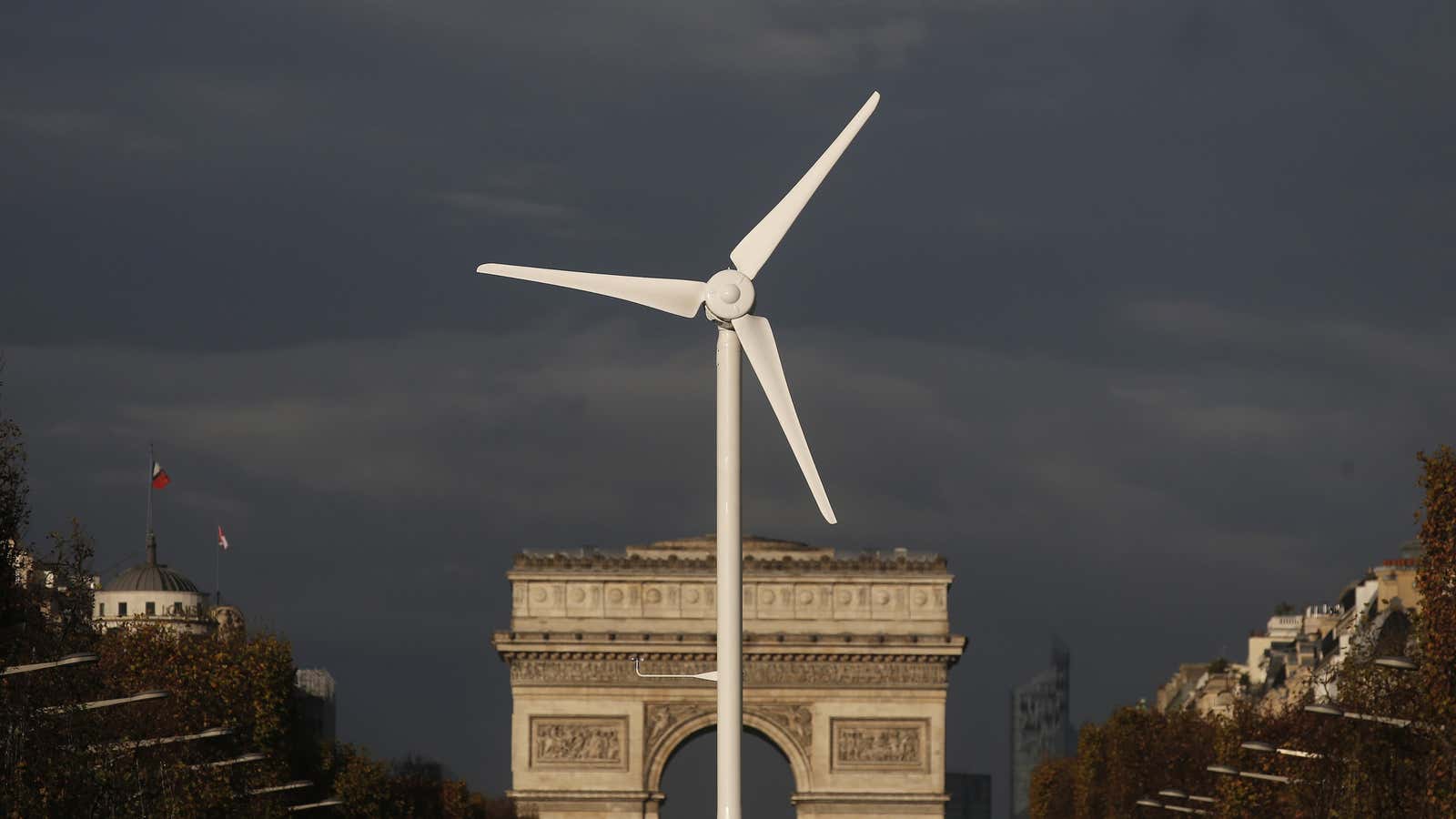The much-anticipated Paris climate summit opens today in Paris, France.
But does it matter?
The answer isn’t obvious. Any Paris agreement will include only voluntary emissions-cutting goals. And scientists have already concluded that, even if each country makes good on its promises, Paris won’t remove serious risk of catastrophic climate change.
But Paris does matter—a lot.
The Council on Foreign Relations hosted a symposium on the Paris talks last week. At the outset of the second session, which focused on climate efforts beyond the United Nations talks, I asked each panelist a question: There are host of climate efforts—national, multilateral, non-governmental—other than the Paris climate talks. How important is Paris compared to the rest of this broader universe?
You can watch the session to hear the panelists’ answers. (All links to the symposium in this post take you to complete video and transcript.) Here’s mine: Success in Paris is essential given how it’s been built up in the public and political consciousness—if Paris is seen to fail, it will sap energy from efforts to curb emissions worldwide, whatever those are. (The first session of the symposium, focused on the Paris talks themselves, made clear that there is considerably more agreement than there was heading into the Copenhagen summit, but still stumbling blocks to clear.)
But success in Paris is far from sufficient: Unless the window that success in Paris opens is used to pursue further efforts to curb climate change, the entire process will rightly be dubbed a failure, having failed to spur (or at least not impede) the policy actions that ultimately matter. The third session of the symposium, an immensely entertaining one-on-one discussion with former New York City mayor Michael Bloomberg, was a clear reminder of how challenging the politics of that follow-through will be—but also of how much opportunity exists.
Last week I posted a guide to following the Paris talks. It encouraged readers to tune out most of the drama over the next two weeks but reinforced the bottom line that Paris has become too big to fail.
